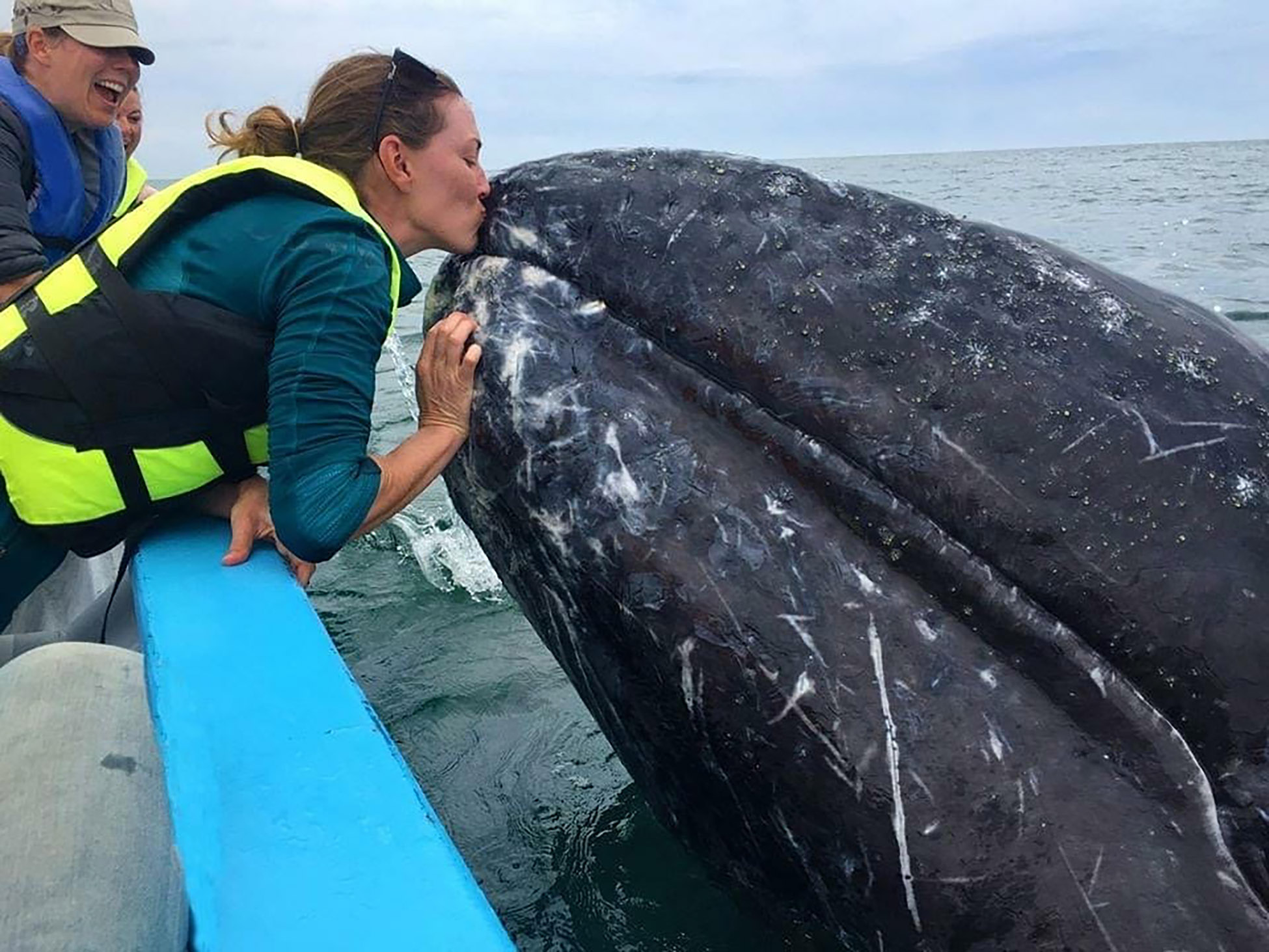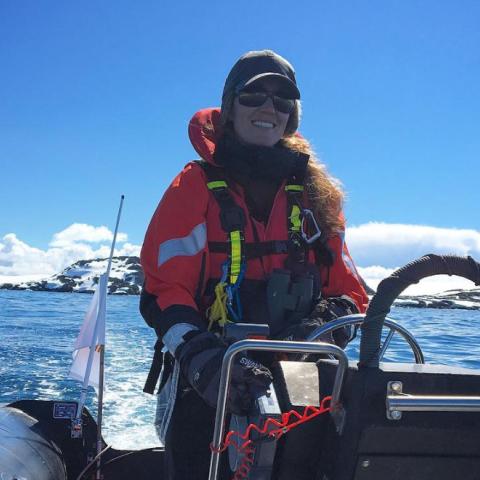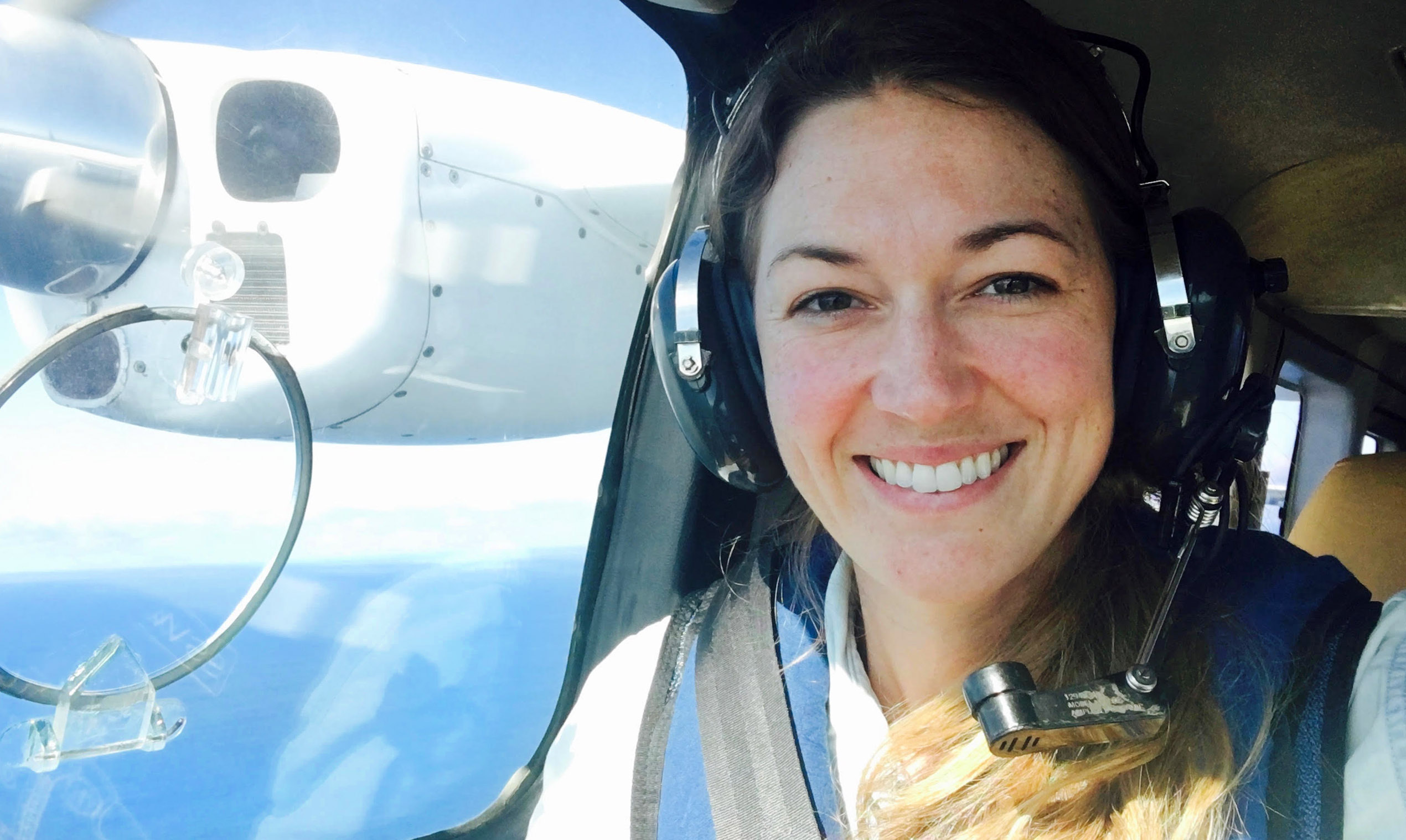Lindsey Reeves’ close relationship with the Bren School has stretched over a decade, originally when she was a PhD in Environmental Science and Management student and now as a marine ecologist with the National Oceanic and Atmospheric Administration (NOAA).
Turns out she works just two buildings over from Bren Hall on the UC Santa Barbara campus. “Because we’re so close, we’ve had several Bren interns in many different types of positions. They’re super sharp and offer a lot to our programs.”
Lindsey’s proximity to the school gives her plenty of opportunities to engage with faculty and students on different levels, such as consulting on Bren’s educational programs and participating on career panels. Lindsey also taps into the school’s offerings for alumni: “I’ve used the Career Center as a resource long after graduation. It’s fantastic and one of Bren’s biggest assets. Kristi, Dave, and their team are always welcoming and encourage alumni to continue to stay in touch with them.”
Lindsey started on her path to becoming a marine biologist from landlocked Syracuse, New York. “Our family spent summers on the coast of Maine, where I fell in love with the ocean.” As a teenager, she had a life-changing experience during a 10-day, hands-on summer program at Woods Hole on Cape Cod. “Until then, I had no idea you could make a career out of exploring the ocean,” she says. She was hooked.

Lindsey earned her bachelor of science degree at University of Miami, where she played basketball while studying marine science, biology and chemistry. Opting to gain marine conservation work experience before applying directly to grad school, she picked up and moved to San Diego.
When she moved west, Lindsey didn’t have a job or home lined up, but was soon settling in and learning to surf. “I was eager to start working in marine conservation, so I took a part-time job with a small nonprofit, Wildcoast.” As her capabilities and passions expanded, so did the job and her professional network. After six years, she was ready to pursue advanced studies in her chosen field. Returning to the East Coast to earn her master’s degree at Duke University, she immediately began thinking of a PhD.
“After my master’s, I was deciding between Bren, the Nicholas School, and Scripps Institution of Oceanography, all great choices. I knew all three of the principle investigators I’d be working with, and in the end I chose to study with Steve Gaines, the dean at Bren, who did a great job of sharing all the wonderful things that Bren had to offer. I knew the program would challenge me, and I liked that Bren is very diverse in terms of the types of research professors and students produce. The biggest draw for me was Bren’s focus on applied science.”
In 2010, she headed to Santa Barbara with a three-year NSF Graduate Research Fellowship. In addition, like other graduate students, her financial support came from a variety of sources, such as teaching, research grants, and even crowd-sourced donations.
I knew the program would challenge me, and I liked that Bren is very diverse in terms of the types of research professors and students produce. The biggest draw for me was Bren’s focus on applied science.
“Bren’s PhD program is structured like many other departments’ programs. There are various exams, written and oral, and your final product is a written dissertation. You work with a committee of Bren and UCSB faculty, and in my case also an external advisor, who help usher you through, critiquing your science at a high level to keep you heading in the right direction. You defend your dissertation to the committee and in a public forum.
“I studied large marine vertebrates — turtles, whales, birds — along the Pacific coast from British Columbia to Peru.” Her dissertation, “Describing the ecology of cryptic marine megafauna and threats to their survival,” passed and in 2016 she became Lindsey E. Peavey Reeves, PhD.

Today Lindsey conducts research and translates information for public education for NOAA’s Channel Islands National Marine Sanctuary, a protected underwater national park off the coast of Santa Barbara. The marine sanctuary is teeming with migrating humpback and blue whales, dolphins and a super-diverse ecosystem.
“My main project is coordinating a soundscape monitoring program along the West Coast that’s been underway for two-and-a-half years. We’ve anchored five underwater microphones to the seafloor around the Channel Islands sanctuary, and others up the coast in the Monterey Bay and Olympic Coast sanctuaries. We’re listening to the environment holistically – whales singing, waves crashing, ships passing by, snapping shrimp.”
When the initial grant funding runs its course, the partners that Lindsey’s team has collaborated with will carry on the research in other ways, to continue to answer research and management questions about sound in the ocean.
Lindsey’s team works with many other individuals and groups, including NGOs, agencies, academic researchers and students. “Bren is exceptional at training students how to forge unexpected partnerships for conservation,” she says.
What other aspects of the “Bren approach” have been helpful in her career? “They teach you how to communicate using strong professional language: the action words you need for selling your work and yourself. How to represent your value, and articulate your worth – what makes you an asset. They give you confidence to shine.
“They also teach you how to get creative about negotiating benefits above and beyond salary, like flexibility, professional development and paid leave. The Career Center team offers workshops throughout the year, and individual coaching. You can’t substitute face time, and so they take a lot of time to work with students one-on-one. They take a lot of time with alumni, too; they’ll review your CV or cover letter. And, of course, they provide skills and resources to build your network.
“Bren won’t let you leave Bren without doing that!”
